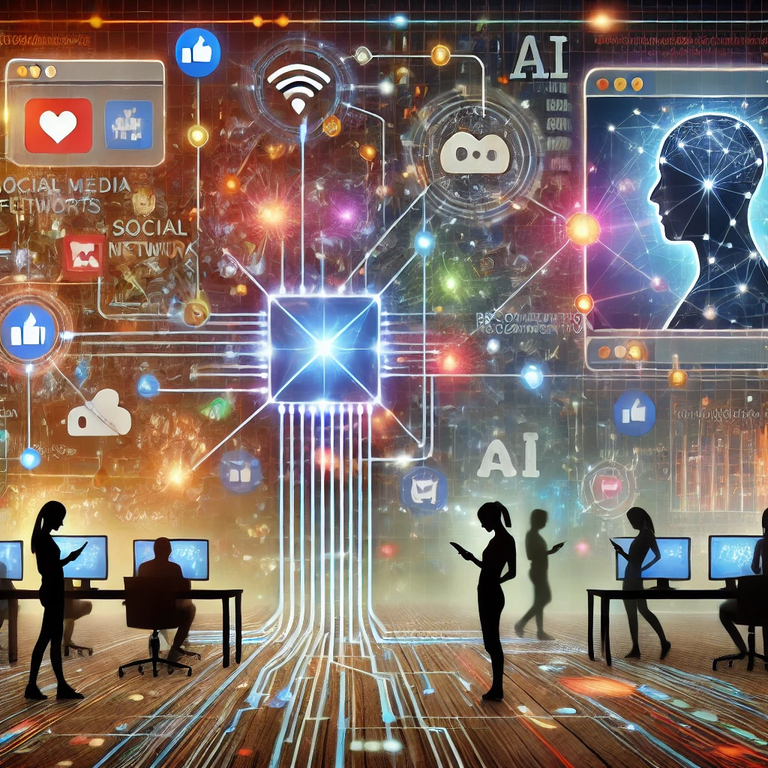
The launch of ChatGPT in November 2022 had a massive impact. Everyone was talking about AI and how it would take over many of the jobs we know in a few years. People were scared, yet people were curious. ChatGPT reached over 1 million users in just 5 days. For comparison, Instagram took about 2 and a half months and Netflix took more than 3 years to reach the same milestone.
I've been wanting to make a blog like this for a while. On the one hand I love technology and I'm really enthousiastic about the possibilities of AI. But on the other hand I also see the downsides of AI and algorithms and I think we need to be more aware of that too.
I hope this post qualifies for the #thoughtfuldaily community.

AI is old
What a lot of people don't know is that AI isn't that new at all. It's actually quite old. Generative AI is something from the past few years, but AI itself goes way back to 1940-1950. Alan Turing, a British mathematician, logician, and computer scientist created the Turing test. This test was a method to determine whether you were talking to a computer or a human. Turing predicted that machines would be able to pass the Turing Test by the year 2000. His predictions didn't really come out, but we're pretty damn close now.
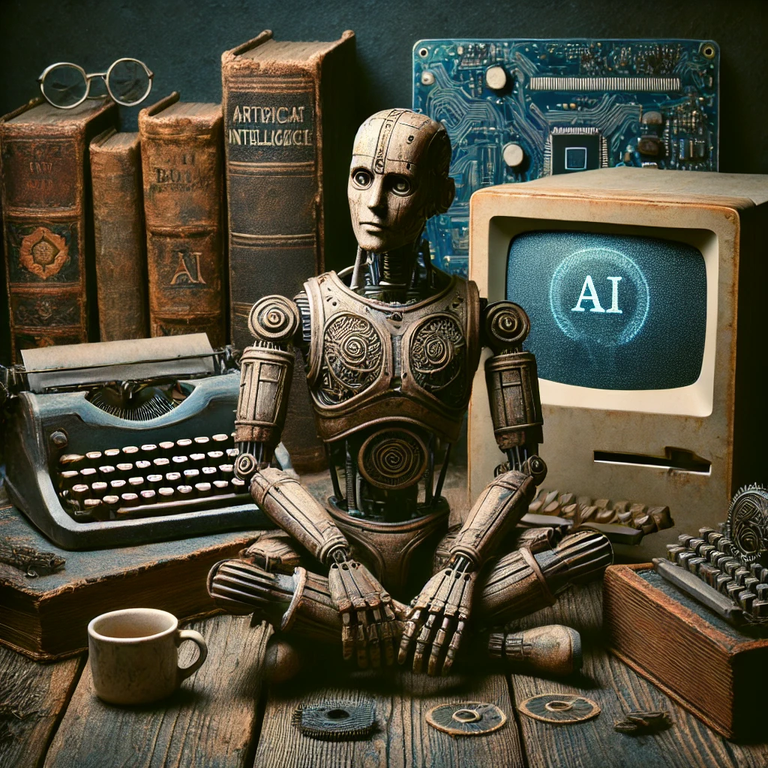
AI in our daily lives
There is a big difference between generative AI and 'regular AI'. Where generative AI creates new, original content—such as text, images, music, or videos, regular AI focuses on tasks like classification, prediction, and decision-making based on existing data.
And that is something we see a lot in our daily lives. At least... do we really see it?
AI is integrated in a lot of services. Actually anything that has to do with predictions, has AI in it. The service providers want to make it as convenient as possible for us as customers. But they also have another agenda... They want you to keep using their service as long as possible so they can earn on advertisements or selling your data.
From word predictions in your smartphone to facebook streams or youtube clips, from personalized playlist on Spotify to recommended series on Netflix. They all use algorithms based on AI to present you more of what they think you want.

The echo chamber effect
As mentioned above, social media platforms use AI to analyze your behavior. They track what you like, share, and comment on. They often even see how long you are watching articles before you scroll or swipe to the next. And then they serve you more of the same because you probably like this. This might seem convenient, but it also has a pitfall. The algorithm creates a loop where you keep seeing similar content, making it less likely that you encounter opposing viewpoints. Over time, this can lead to an echo chamber where your opinions are constantly reinforced, rather than challenged.
Where in the days of physical newspapers you were presented all the news, nowadays all the news you receive is filtered. This can cause that you get a wrong view on reality.

Youtube and the confirmation bias trap
Youtube is another great (or rather bad) example of AI shaping your perspective of things. If you watch a video on a specific topic, the algorithm will suggest more videos with the same viewpoint. While this can be helpful when researching a subject, it also reinforces confirmation bias. The confirmation bias is the tendency to seek information that supports what you already believe. This can make it difficult to discover alternative perspectives or unbiased information. This can be really dangerous. For instance if you watch videos of conspiracy theories, Youtube will provide more and more conspiracy theory video's that confirm the earlier videos you've watched. This could get people drawn into a rabbit hole.

Convenience versus freedom of choice
Yes, we have control over our choices, but it's not always clearly visible how AI algorithms steer us in certain directions. All these algorithms are working on the background filtering our results based on the data they have from us. And the big tech companies often have a lot of data from different sources from us.
Information about searches from search engines which prioritize results based on what they think we find most interesting. Streaming services recommend movies and shows based on what you’ve already watched. Spotify recommends artists and bands that make music of the same genre of what you always listen to. Online shopping platforms suggest products based on your browsing history. And booking sites offer you holidays to locations that are similar as where you have been to already.
While this may seem convenient, it also means that your choices are being steered by these algorithms rather than by your own curiosity. And this way you'll always stay in the same circle and will be shown less information of the things you haven't discovered yet.
Don't you want to get new ideas, discover new series, music genres or holiday destinations? Discovering new things makes life interesting!
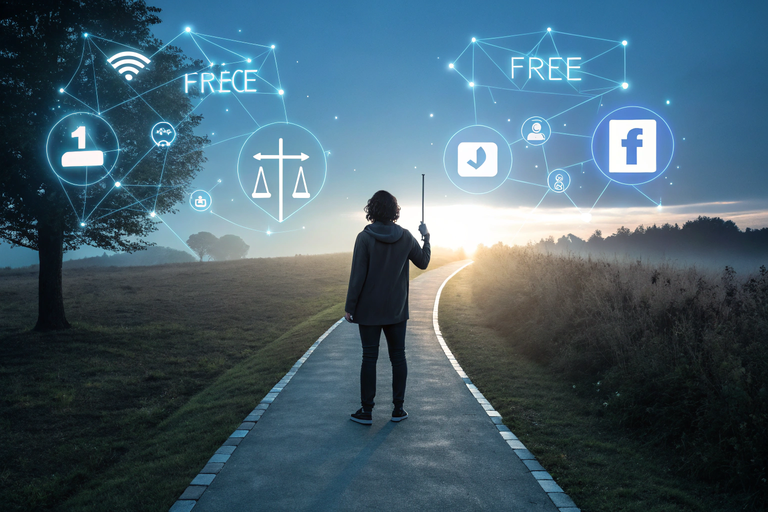

What can we do about it?
First of all we really need to be aware of AI algorithms in all the services we use and how it influences our choices. But then what? How can we regain control over our choices in life?
Yes, I do use a lot of online services. I do have Spotify, I watch youtybe and browse the internet, but I do have some ways to get new information that isn't being presented to me based on my data.
Here are a few tips how I try to break free from the AI algorithms.
Talk to people! And not only people from your own circle of friends and family, but people with other lives, with opposing views, and other interests. Try not to be judgemental about their thoughts, but listen to what they have to say, whether you agree with them or not.
Read news from multiple sources. Watch different news channels, buy a newspaper every now and then, but read all the different news and opinions.
In this case Hive is also a perfect Social Media platform since the content isn't steered by algorithms. You get to see the content of the people you choose to follow. And I would recommend you to explore the All topics feed sometimes. Read some blogs from people you don't know. Check out some niche communities you haven't visited before. You might just find some new and interesting people or content.
Snaps Microblogging from PeakD (https://peakd.com/snaps/snaps/newest) is also a perfect way for me to find new interesting people and new content.
Reset your algorithms. Clear your history on the services you use like your search and watch history to disrupt recommendation patterns.
Go incognito! Don't have your social media or Google accounts logged in while browsing. Facebook has so-called facebook pixels on many websites that track whether a logged in facebook user is on the site, gathering information about it. Log out your account or start browsing the web in incognito mode.
I'm using the DuckDuckGo browser a lot on my phone and laptop. This browser blocks tracking cookies from websites has a burn button that clears all your surfing history. But there are also other privacy friendly browsers like Brave.
As a test you should actually perform a searching things both in your default browser as a privacy browser to see the difference...
Eventually you could get yourself a VPN service so they can't even track the IP you're coming from.
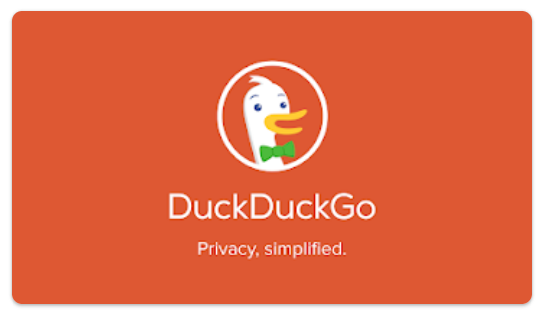
Be mindful of your consumption. Social media platforms and their algorithms are designed to keep you on their platform as long as possible. We probable all have been passively scrolling trough content on any of the social media platforms while forgetting the time. Take a timeout and make conscious decisions about what content you engage with and how long. Be aware of what you are doing.
AI can be a wonderful tool that makes live a lot easier for us. It can help us make decisions. But we also need to be aware of AI steering us in certain directions and also that big tech companies have reasons to do this. And it isn't only to make our life easier.
Be aware and take back control!

Disclaimer
All the images in this blog are generated by ChatGPT. I've also used ChatGPT to find some information about the history of AI and translate some sentences since I'm not a native English speaker.
But I was in control of the content of this blog, not AI.

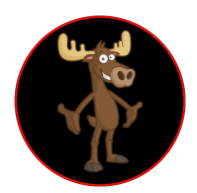
About FriendlyMoose
I'm an amateur photographer with a love for indoor gardening, craft beer, and cycling. As the owner of the Cycling Community and the creator of the Topcomment initiative, I focus on fostering engagement and bringing like-minded people together.
Check out my projects below!

Topcomment

Topcomment is an initiative to reward high quality comments.

Hive Photographers

For all Hive Photographers: come join our Hive Photographer Discord Channel


A weekly blog with an overview of all the photography contests on Hive. #photocontests.


Share anything about cycling in the Cycling Community
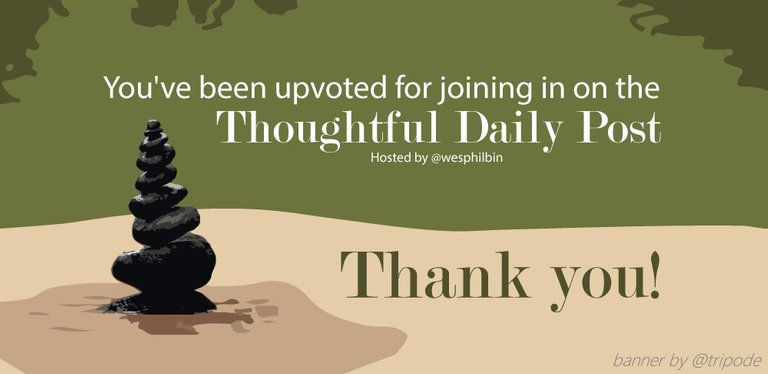
 Wes & Grindan
Wes & Grindan